- 1. Where can I report a breach of academic integrity?
Breaches of academic integrity, known as FIAs (by its acronym in Spanish) must be reported through the ETHOS platform, which can be accessed in two ways:- miTec > Search Bar: “Reportar faltas a la integridad académica” > Realizar reporte
- Website: https://letica.mx/ethosestudiantestec?locale=es
- 2. What is academic integrity?
It means “acting with honesty, commitment, fairness, responsibility and respect in learning, research and dissemination of culture.” It implies having the courage to stand up for these principles, even when it is difficult to do so (Chapter IX of the Academic Regulations).- 3. What is a breach of academic integrity?
A breach of academic integrity is considered any individual or collective action or omission of the students that is committed inside or outside the classroom, that violates the principles of academic integrity and/or that seeks to obtain or facilitate a benefit or academic advantage.- 4. What does "FIA" mean?
It is the Spanish acronym of Falta a la Integridad Académica, that is, Breach of Academic Integrity- 5. What’s the difference between a DA and an FIA?
“DA" (by its acronym in Spanish) means “Deshonestidad Académica”, that is, "Academic Dishonesty". It was a term used to report cases of breaches of academic integrity committed by students, according to the Academic Dishonesty Program and the academic regulations of that time. In July 2017, the Academic Integrity Program was launched with the purpose of promoting a culture in the community, focusing on providing the students with more formative rather than just punitive consequences. Therefore, when a student is reported for having committed an academic integrity breach, the correct term to use is “FIA”, by its acronym in Spanish (that is Falta a la Integridad Académica) and not “DA”.- 6. What are the consequences of committing a breach of academic integrity?
You can consult the consequences of committing any breach of academic integrity in Chapter IX of the Academic Regulations, click on the link that corresponds to your level of studies:
High School Students:
https://tec.mx/en/tec-high-school/policies-and-regulations
Undergraduate Students:
https://tec.mx/en/undergraduate/policies-and-regulations
Graduate Students:
https://tec.mx/en/graduate/policies-and-regulations- 7. What types of consequences are appealable?
Only the breaches of academic integrity that result in a temporary suspension or permanent withdrawal from the Institution may be appealed in accordance with the provisions of the Academic Regulations. To do so, it is important to follow the procedure declared in Chapter IX of the Academic Regulations.- 8. What is the process for a student to appeal for a resolution of temporary suspension or permanent withdrawal?
Only the breaches of academic integrity that result in a temporary suspension or permanent withdrawal from the Institution may be appealed in accordance with the provisions of the Academic Regulations. To do so, it is important to follow the procedure declared in Chapter IX of the Academic Regulations.- 9. Who can report a breach of academic integrity?
According to the article 9.4 of the Academic Regulations, any student, member of the academic staff, institutional authority, member of the Tec de Monterrey educational community or any external entity linked to the academic process, who has knowledge of any act that may constitute a violation to academic integrity, must communicate it in writing to the Campus Academic Integrity Committee (CIAC), including evidence that demonstrates the fact. To do this, a report must be made through the ETHOS platform, which can be accessed in two ways:- miTec > Search Bar: “Reportar faltas a la integridad académica” > Realizar reporte
- Website: https://letica.mx/ethosestudiantestec?locale=es
- 10. What is the purpose of the Academic Integrity program?
To strengthen the culture of academic integrity at Tec de Monterrey, through a set of actions oriented to raise awareness and educate about integrity, as well as provide an effective management of breaches of academic integrity, according to the Academic Regulations of our Institution, to promote honesty, respect, commitment, responsibility and justice in the field of learning, teaching, research and the dissemination of culture.- 11. Who is part of the Academic Integrity Program?
The entire Tec community is part of the Academic Integrity Program; however, the people who collaborate directly in the Campus and National Academic Integrity Committees have a special participation, as well as the people who perform the role of Ambassadors of Academic Integrity and the teachers of the Integrity Academy.- 12. What is a Campus Academic Integrity Committee (CIAC)?
A Campus Academic Integrity Committee (CIAC, by its acronym in Spanish) is a deliberative body that, by addressing and resolving cases of breaches of academic integrity, educates students in integrity and strengthens the culture of integrity on the Campus and in the Institution in general.- 13. What does a Campus Academic Integrity Committee (CIAC) do?
-
- Educates students in integrity, contributing with this to the formation of professionals technically efficient and ethically responsible.
- Promotes the strengthening of a culture of academic integrity in our Institution.
- 14. What is a National Academic Integrity Committee (CIAN)?
The National Academic Integrity Committee (CIAN, by its acronym in Spanish) is the body responsible for reviewing appealed cases submitted by reported students who received resolutions of temporary suspension or permanent withdrawal.- 15. What does the National Academic Integrity Committee (CIAN) do?
The main function of the CIAN is to analyze and resolve the appealed cases it receives, in accordance with the provisions of Chapter IX of the Academic Regulations of the Institution.- 16. What can I do if I witness a breach of academic integrity?
It is important that you report it through the ETHOS platform. To access, follow either step:- miTec > Search Bar: “Reportar faltas a la integridad académica” > Realizar reporte
- Website: https://letica.mx/ethosestudiantestec?locale=es
- 17. What is the process for managing a breach of academic integrity?
-
When a student has committed a breach of academic integrity, the professor:
- Will assign a failing grade, either in the activity, exam, project, subject, etc.
- Make a report to the Campus Academic Integrity Committee (CIAC) through ETHOS platform.
Then, the Campus Academic Integrity Committee (CIAC):
- Will analyze the seriousness of the reported events.
- Will subsequently indicate whether it is necessary for the student to attend a hearing session to discuss what happened.
It is very important that students always check their institutional email, as there they will be contacted about any situation related to the case.
- 18. What are examples of breaches of academic integrity?
-
A breach of academic integrity is considered any individual or collective action or omission by students, whether committed inside or outside the classroom, that violates the principles of academic integrity and/or seeks to obtain or facilitate an academic benefit or advantage.
Some examples of this type of actions or omissions are: copy or attempt to copy any type of exam or learning activity; partial or total plagiarism; facilitate any activity or material to be copied and/or presented as your own; impersonation; access and/or manipulate, without express authorization, email accounts or institutional systems; falsify information; alter academic documents; sell or buy exams or distribute them by any means; steal or obtain information improperly or attempt to bribe a professor or any collaborator of the Institution; the alteration of clinical records; unauthorized use of tools, software or devices; among other. For any further questions, email us at integridad.academica@itesm.mx
- 19. ¿En qué capítulo del Reglamento Académico se habla sobre integridad académica?
Throughout the Academic Regulations there are several articles related to academic integrity; However, Chapter IX is where you can learn more details about the Academic Integrity Program. We invite you to click on the link that corresponds to your level of studies:
High School Students:
https://tec.mx/en/tec-high-school/policies-and-regulations
Undergraduate Students:
https://tec.mx/en/undergraduate/policies-and-regulations
Graduate Students:
https://tec.mx/en/graduate/policies-and-regulations- 20. What is a remediation assignment?
A remediation assignment is an educational intervention designed to prevent future infractions. It is aimed to promote reflection among students and raise their ethical awareness to help them make ethical decisions in difficult circumstances.- 21. What is an Academic Integrity Plan?
An Academic Integrity Plan is aimed specifically at students who have been suspended from the Institution. In this period of separation from the school, students carry out a series of activities that allow them to reflect on the breach of academic integrity committed and are provided with tools that help them strength their moral conscience. Unlike the remediation assignments, the Academic Integrity Plan lasts from one month up to one year and can include activities to be performed in collaboration with a social organization.
Buscar
- 1. Where can I report a breach of academic integrity?
Breaches of academic integrity, known as FIAs (by its acronym in Spanish) must be reported through the ETHOS platform, which can be accessed in two ways:- miTec > Search Bar: “Reportar faltas a la integridad académica” > Realizar reporte
- Website: https://letica.mx/ethosestudiantestec?locale=es
- 2. What is academic integrity?
It means “acting with honesty, commitment, fairness, responsibility and respect in learning, research and dissemination of culture.” It implies having the courage to stand up for these principles, even when it is difficult to do so (Chapter IX of the Academic Regulations).- 3. What is a breach of academic integrity?
A breach of academic integrity is considered any individual or collective action or omission of the students that is committed inside or outside the classroom, that violates the principles of academic integrity and/or that seeks to obtain or facilitate a benefit or academic advantage.- 4. What does "FIA" mean?
It is the Spanish acronym of Falta a la Integridad Académica, that is, Breach of Academic Integrity- 5. What’s the difference between a DA and an FIA?
“DA" (by its acronym in Spanish) means “Deshonestidad Académica”, that is, "Academic Dishonesty". It was a term used to report cases of breaches of academic integrity committed by students, according to the Academic Dishonesty Program and the academic regulations of that time. In July 2017, the Academic Integrity Program was launched with the purpose of promoting a culture in the community, focusing on providing the students with more formative rather than just punitive consequences. Therefore, when a student is reported for having committed an academic integrity breach, the correct term to use is “FIA”, by its acronym in Spanish (that is Falta a la Integridad Académica) and not “DA”.- 6. What are the consequences of committing a breach of academic integrity?
You can consult the consequences of committing any breach of academic integrity in Chapter IX of the Academic Regulations, click on the link that corresponds to your level of studies:
High School Students:
https://tec.mx/en/tec-high-school/policies-and-regulations
Undergraduate Students:
https://tec.mx/en/undergraduate/policies-and-regulations
Graduate Students:
https://tec.mx/en/graduate/policies-and-regulations- 7. What types of consequences are appealable?
Only the breaches of academic integrity that result in a temporary suspension or permanent withdrawal from the Institution may be appealed in accordance with the provisions of the Academic Regulations. To do so, it is important to follow the procedure declared in Chapter IX of the Academic Regulations.- 8. What is the process for a student to appeal for a resolution of temporary suspension or permanent withdrawal?
Only the breaches of academic integrity that result in a temporary suspension or permanent withdrawal from the Institution may be appealed in accordance with the provisions of the Academic Regulations. To do so, it is important to follow the procedure declared in Chapter IX of the Academic Regulations.- 9. Who can report a breach of academic integrity?
According to the article 9.4 of the Academic Regulations, any student, member of the academic staff, institutional authority, member of the Tec de Monterrey educational community or any external entity linked to the academic process, who has knowledge of any act that may constitute a violation to academic integrity, must communicate it in writing to the Campus Academic Integrity Committee (CIAC), including evidence that demonstrates the fact. To do this, a report must be made through the ETHOS platform, which can be accessed in two ways:- miTec > Search Bar: “Reportar faltas a la integridad académica” > Realizar reporte
- Website: https://letica.mx/ethosestudiantestec?locale=es
- 10. What is the purpose of the Academic Integrity program?
To strengthen the culture of academic integrity at Tec de Monterrey, through a set of actions oriented to raise awareness and educate about integrity, as well as provide an effective management of breaches of academic integrity, according to the Academic Regulations of our Institution, to promote honesty, respect, commitment, responsibility and justice in the field of learning, teaching, research and the dissemination of culture.- 11. Who is part of the Academic Integrity Program?
The entire Tec community is part of the Academic Integrity Program; however, the people who collaborate directly in the Campus and National Academic Integrity Committees have a special participation, as well as the people who perform the role of Ambassadors of Academic Integrity and the teachers of the Integrity Academy.- 12. What is a Campus Academic Integrity Committee (CIAC)?
A Campus Academic Integrity Committee (CIAC, by its acronym in Spanish) is a deliberative body that, by addressing and resolving cases of breaches of academic integrity, educates students in integrity and strengthens the culture of integrity on the Campus and in the Institution in general.- 13. What does a Campus Academic Integrity Committee (CIAC) do?
-
- Educates students in integrity, contributing with this to the formation of professionals technically efficient and ethically responsible.
- Promotes the strengthening of a culture of academic integrity in our Institution.
- 14. What is a National Academic Integrity Committee (CIAN)?
The National Academic Integrity Committee (CIAN, by its acronym in Spanish) is the body responsible for reviewing appealed cases submitted by reported students who received resolutions of temporary suspension or permanent withdrawal.- 15. What does the National Academic Integrity Committee (CIAN) do?
The main function of the CIAN is to analyze and resolve the appealed cases it receives, in accordance with the provisions of Chapter IX of the Academic Regulations of the Institution.- 16. What can I do if I witness a breach of academic integrity?
It is important that you report it through the ETHOS platform. To access, follow either step:- miTec > Search Bar: “Reportar faltas a la integridad académica” > Realizar reporte
- Website: https://letica.mx/ethosestudiantestec?locale=es
- 17. What is the process for managing a breach of academic integrity?
-
When a student has committed a breach of academic integrity, the professor:
- Will assign a failing grade, either in the activity, exam, project, subject, etc.
- Make a report to the Campus Academic Integrity Committee (CIAC) through ETHOS platform.
Then, the Campus Academic Integrity Committee (CIAC):
- Will analyze the seriousness of the reported events.
- Will subsequently indicate whether it is necessary for the student to attend a hearing session to discuss what happened.
It is very important that students always check their institutional email, as there they will be contacted about any situation related to the case.
- 18. What are examples of breaches of academic integrity?
-
A breach of academic integrity is considered any individual or collective action or omission by students, whether committed inside or outside the classroom, that violates the principles of academic integrity and/or seeks to obtain or facilitate an academic benefit or advantage.
Some examples of this type of actions or omissions are: copy or attempt to copy any type of exam or learning activity; partial or total plagiarism; facilitate any activity or material to be copied and/or presented as your own; impersonation; access and/or manipulate, without express authorization, email accounts or institutional systems; falsify information; alter academic documents; sell or buy exams or distribute them by any means; steal or obtain information improperly or attempt to bribe a professor or any collaborator of the Institution; the alteration of clinical records; unauthorized use of tools, software or devices; among other. For any further questions, email us at integridad.academica@itesm.mx
- 19. ¿En qué capítulo del Reglamento Académico se habla sobre integridad académica?
Throughout the Academic Regulations there are several articles related to academic integrity; However, Chapter IX is where you can learn more details about the Academic Integrity Program. We invite you to click on the link that corresponds to your level of studies:
High School Students:
https://tec.mx/en/tec-high-school/policies-and-regulations
Undergraduate Students:
https://tec.mx/en/undergraduate/policies-and-regulations
Graduate Students:
https://tec.mx/en/graduate/policies-and-regulations- 20. What is a remediation assignment?
A remediation assignment is an educational intervention designed to prevent future infractions. It is aimed to promote reflection among students and raise their ethical awareness to help them make ethical decisions in difficult circumstances.- 21. What is an Academic Integrity Plan?
An Academic Integrity Plan is aimed specifically at students who have been suspended from the Institution. In this period of separation from the school, students carry out a series of activities that allow them to reflect on the breach of academic integrity committed and are provided with tools that help them strength their moral conscience. Unlike the remediation assignments, the Academic Integrity Plan lasts from one month up to one year and can include activities to be performed in collaboration with a social organization.
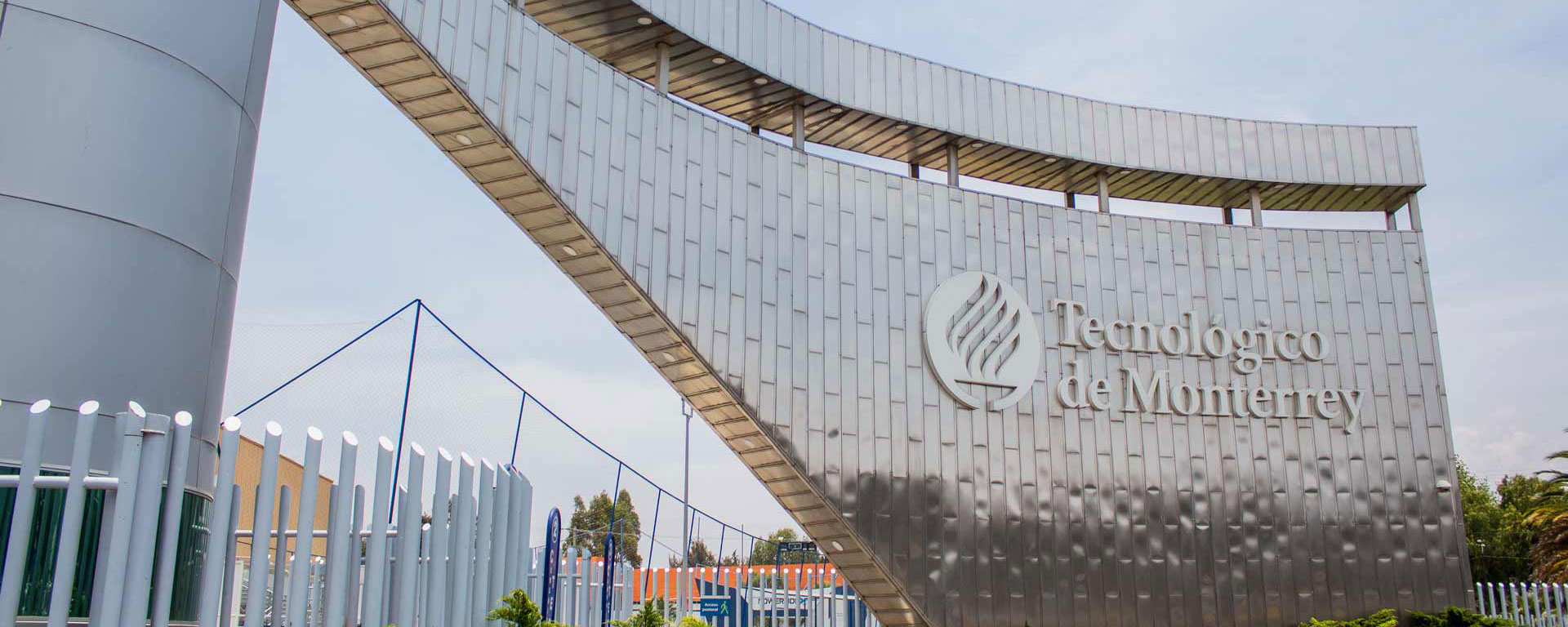
The Tecnológico de Monterrey in Hidalgo was born as the dream of a group of visionary businessmen in the 70s, who, committed to their region, sought to contribute to its development by expanding and improving educational options in the state.
The campus has been founded for 39 years and continues to grow and innovate in its facilities to be the best private university in the state.
Regarding venues, we put the following spaces at your disposal, seeking to be the best option that adapts to the height of your event, providing you with an exceptional experience.

The Tecnológico de Monterrey in Hidalgo was born as the dream of a group of visionary businessmen in the 70s, who, committed to their region, sought to contribute to its development by expanding and improving educational options in the state.
The campus has been founded for 39 years and continues to grow and innovate in its facilities to be the best private university in the state.
Regarding venues, we put the following spaces at your disposal, seeking to be the best option that adapts to the height of your event, providing you with an exceptional experience.
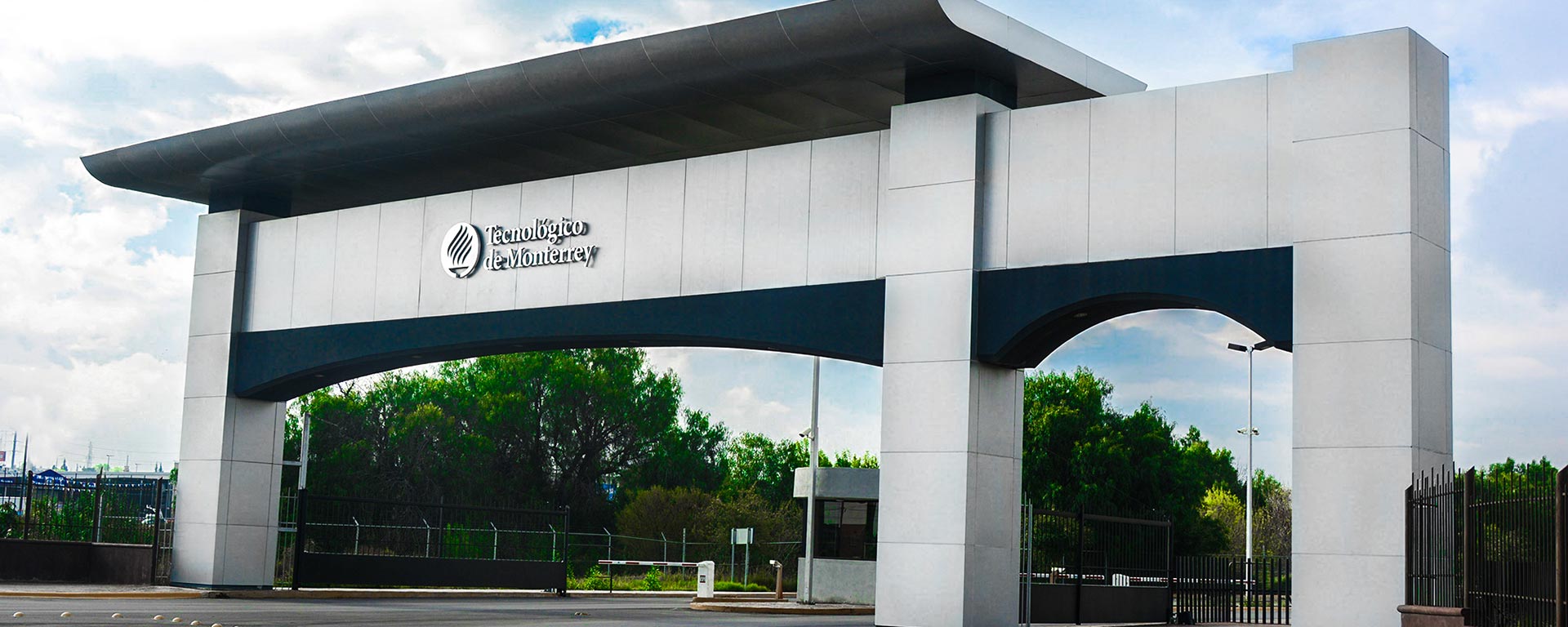
The Tecnológico de Monterrey Saltillo campus began its activities in August 1974 and the infrastructure development stage and financial campaigns have allowed growth to continue.
This page is intended to show the venues available to carry out multifaceted events considering the needs they have, focusing on carrying them out.
If you want to know more about our campus and spaces, we invite you to consult our catalog, as well as to contact us through the form. This way, we can respond to your request as soon as possible.

The Tecnológico de Monterrey Saltillo campus began its activities in August 1974 and the infrastructure development stage and financial campaigns have allowed growth to continue.
This page is intended to show the venues available to carry out multifaceted events considering the needs they have, focusing on carrying them out.
If you want to know more about our campus and spaces, we invite you to consult our catalog, as well as to contact us through the form. This way, we can respond to your request as soon as possible.
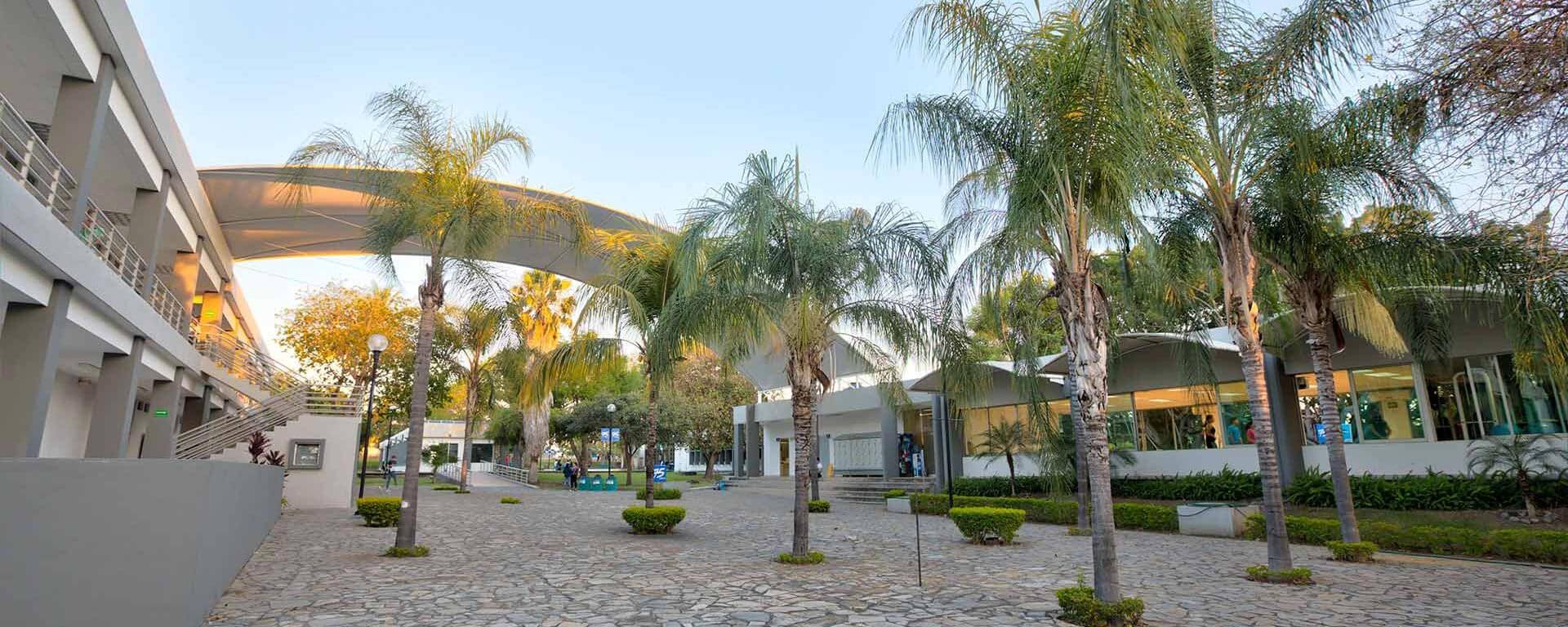
Tec de Monterrey has provided education in Colima with a cutting-edge model, which has trained and encouraged young people in the region to fulfill their dreams. This, encouraged by the invitation of a group of businessmen committed to education in the state, who allowed Tec to settle in an ideal space to offer a unique learning experience.
In the world of events, Colima campus has the following spaces available to carry them out considering different capacities, parking, and technological support, seeking to adapt to your needs and seeking the best experience in them.
We invite you to discover the spaces we must hold all types of events!

Tec de Monterrey has provided education in Colima with a cutting-edge model, which has trained and encouraged young people in the region to fulfill their dreams. This, encouraged by the invitation of a group of businessmen committed to education in the state, who allowed Tec to settle in an ideal space to offer a unique learning experience.
In the world of events, Colima campus has the following spaces available to carry them out considering different capacities, parking, and technological support, seeking to adapt to your needs and seeking the best experience in them.
We invite you to discover the spaces we must hold all types of events!

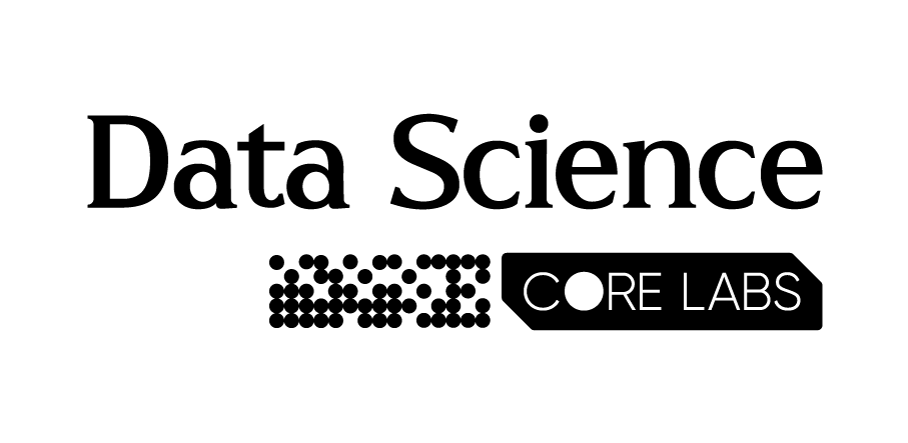
Core Lab Data Science provides High Performance Processing services using CPUs and GPUs, as well as Data Storage services.
Core Lab also has specialized software for specific projects.
In addition, it is in contact with other organizational units of Tec de Monterrey to develop projects of Descriptive Analytics, Prescriptive Analytics, Prescriptive Analytics and GenAI, using Statistics and Machine Learning.

Connection with Institutes and Schools of Tecnológico de Monterrey.

Custom projects

Connection with Universities

Connection with specialized platforms

Highly specialized human resource


The GPU infrastructure, with its highly parallel architecture, drives intensive data processing in fields such as artificial intelligence and scientific research. These graphics processing units allow for complex calculations to be performed quickly and efficiently, transforming computing and democratizing access to high-performance computing power in various industrial and academic sectors.


The CPU infrastructure, or Central Processing Units, is the backbone of modern computing. Composed of interconnected processors, it handles a wide range of tasks from simple calculations to complex software operations. Its versatility and ability to run a variety of applications make it fundamental in devices from personal computers to enterprise servers, providing the necessary computing power to drive technological innovation in all aspects of modern life.


The storage infrastructure constitutes the vital support for data management and preservation in the digital realm. Through technologies such as hard drives, solid-state drives (SSD) and cloud storage systems, this infrastructure allows for efficient and secure storage, retrieval, and sharing of information. From personal files to critical business data, the storage infrastructure plays a fundamental role in the organization and access to information in the digital age, facilitating collaboration and continuity of operations in various sectors and contexts.


The Core Lab is in contact with other Organizational Units of Tec to offer AI services to carry out: Prediction and forecasting, Planning, Decision intelligence, Autonomous systems, Segmentation/clustering, Recommendation systems, Object detection and recognition, Intelligent automation, Anomaly detection and monitoring, Content generation, Conversational user interfaces, and Knowledge discovery.

ETL – Extraction, Transform and Load
Data Cleaning, Transformation and Storage

Data Dashboards, Deployment, Operation (MLOps)

Computational Simulation through High Performance Computing

Generative AI

Prediction and Forecasting

Planning

Smart Choices

Autonomous Systems



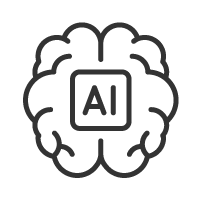






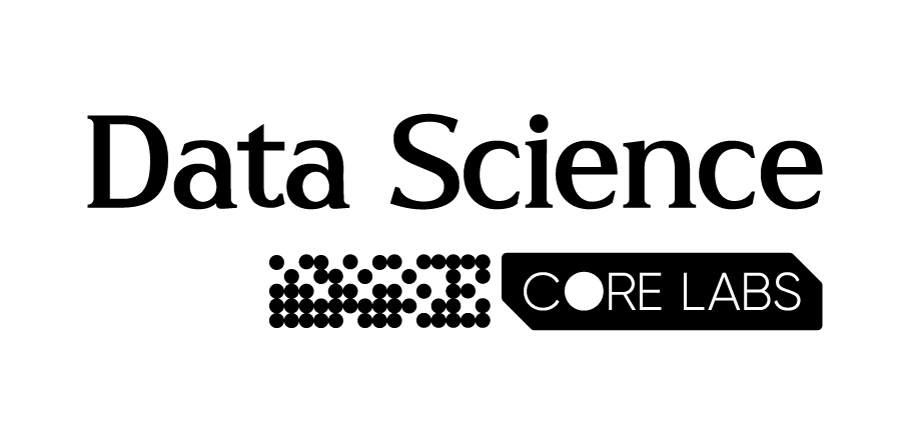
El Core Lab Data Science proporciona servicios de Procesamiento de alto Rendimiento utilizando CPUs y GPUs, así como el de Almacenamiento de Datos.
El Core Lab también cuenta con software especializado para proyectos específicos.
Además, está en contacto con otras unidades organizacionales del Tec para desarrollar proyectos de Analíticas Descriptiva, Analítica Prescriptiva, Analítica Prescriptiva y GenAI, utilizando Estadística y Machine.

Connection with Institutes and Schools of Tecnológico de Monterrey.

Custom projects

Connection with Universities

Connection with specialized platforms

Highly specialized human resource


La infraestructura de GPUs, con su arquitectura altamente paralela, impulsa el procesamiento de datos intensivos en campos como la inteligencia artificial y la investigación científica. Estas unidades de procesamiento gráfico permiten realizar cálculos complejos de manera rápida y eficiente, transformando la computación y democratizando el acceso al poder computacional de alto rendimiento en diversos sectores industriales y académicos.


La infraestructura de CPUs, o Unidades de Procesamiento Central, es la columna vertebral de la computación moderna. Compuesta por procesadores interconectados, maneja una amplia gama de tareas desde cálculos simples hasta complejas operaciones de software. Su versatilidad y capacidad para ejecutar una variedad de aplicaciones lo hacen fundamental en dispositivos desde computadoras personales hasta servidores empresariales, proporcionando la potencia de cómputo necesaria para impulsar la innovación tecnológica en todos los aspectos de la vida moderna


La infraestructura de almacenamiento constituye el soporte vital de la gestión y preservación de datos en el ámbito digital. A través de tecnologías como discos duros, unidades de estado sólido (SSD) y sistemas de almacenamiento en la nube, esta infraestructura permite almacenar, recuperar y compartir información de manera eficiente y segura. Desde archivos personales hasta datos empresariales críticos, la infraestructura de almacenamiento desempeña un papel fundamental en la organización y acceso a la información en la era digital, facilitando la colaboración y la continuidad de operaciones en diversos sectores y contextos.


El Core Lab está en contacto con otras Unidades Organizacionales del Tec para ofrecer servicios de IA para realizar: Predicción y pronóstico, Planificación, Inteligencia de decisiones, Sistemas autónomos, Segmentación/agrupación, Sistemas de recomendación, Detección y reconocimiento de objetos, Automatización inteligente, Detección y monitoreo de anomalías, Generación de contenido, Interfaces de usuario conversacionales y Descubrimiento de conocimiento.

ETL – Extraction, Transform and Load
Data Cleaning, Transformation and Storage

Data Dashboards, Deployment, Operation (MLOps)

Computational Simulation through High Performance Computing

Generative AI

Prediction and Forecasting

Planning

Smart Choices

Autonomous Systems









